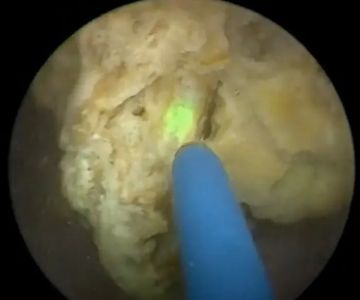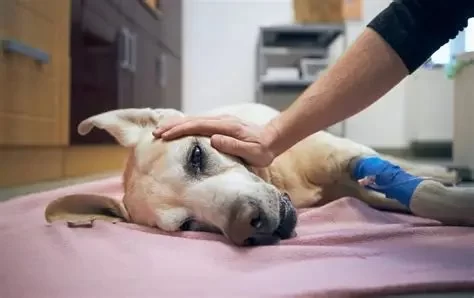- what-is-dog-diarrhea-what-it-means-and-why-it-matters
- cause-1-dietary-indiscretion-and-garbage-raiding
- cause-2-sudden-diet-changes-and-food-intolerance
- cause-3-intestinal-parasites-and-worm-infestation
- cause-4-bacterial-and-viral-infections
- cause-5-toxic-substances-and-household-hazards
- cause-6-stress-anxiety-and-environmental-triggers
- cause-7-underlying-medical-conditions
- cause-8-medications-and-side-effects
- cause-9-food-allergies-and-sensitivities
- cause-10-aging-and-digestive-decline
- when-to-see-a-vet-critical-signs-to-watch
What Is Dog Diarrhea: What It Means and Why It Matters
Dog diarrhea is a common yet worrying condition that every pet parent may encounter. It's the body's way of responding to irritants, infections, or internal imbalances, and while some cases are mild and resolve quickly, others can signal serious health problems. If your furry friend is suddenly having loose or watery stools, it’s not just messy—it could be a sign that something deeper is going on. The key is knowing the root causes and when professional care is necessary.

VCA Arboretum View Animal Hospital, 2551 Warrenville Rd, Downers Grove, IL 60515, USA
See Details1. Dietary Indiscretion and Garbage Raiding
One of the most frequent causes of diarrhea in dogs is dietary indiscretion—when your dog eats something they shouldn't. This could mean rummaging through trash, gobbling table scraps, or chewing on spoiled food. These sudden intakes of foreign or fatty substances can wreak havoc on their digestive system. For example, a Labrador named Max in Virginia ended up at Hidden Brook Veterinary after sneaking into a neighbor’s compost pile. He recovered, but only after IV fluids and probiotics were administered.
Preventive Insight
Keep trash out of reach and educate family members not to feed dogs human food. If your dog has a history of scavenging, consider using a muzzle during walks as a safety measure.
2. Sudden Diet Changes and Food Intolerance
Switching your dog’s food abruptly can disrupt their gut flora, leading to digestive upset. Gradual transition—over 7 to 10 days—is essential. Even high-quality foods can cause issues if introduced too quickly. Additionally, some dogs have natural intolerances, like lactose or grains.
Pro Tip
If you're not sure which food transition method suits your dog, Hidden Brook Veterinary can provide personalized feeding plans to make transitions smoother and healthier.
3. Intestinal Parasites and Worm Infestation
Roundworms, hookworms, whipworms, and Giardia are notorious for causing diarrhea in dogs, especially puppies. Symptoms often include mucus or blood in the stool and weight loss. Regular deworming and fecal checks are critical.
Example Case
A local rescue brought in a Beagle with persistent diarrhea. A stool test revealed a Giardia infection, and with the proper treatment from Hidden Brook Veterinary, the pup made a full recovery.
4. Bacterial and Viral Infections
Bacteria like Salmonella or E. coli, and viruses such as Parvovirus, can trigger acute, sometimes life-threatening diarrhea. Puppies are particularly vulnerable. Vaccinations and hygiene are your best defense.
Watch for Warning Signs
Lethargy, bloody stool, or vomiting may accompany infection-related diarrhea. These require immediate veterinary attention.
5. Toxic Substances and Household Hazards
Chocolate, xylitol (a sugar substitute), antifreeze, and certain plants are toxic to dogs and often result in vomiting and diarrhea. Time is of the essence in such cases.
Emergency Protocol
If ingestion of a harmful substance is suspected, don’t wait—seek urgent help. Hidden Brook Veterinary offers emergency toxin treatment plans tailored to common regional exposures.
6. Stress, Anxiety, and Environmental Triggers
Major life changes like moving, loud noises, or separation anxiety can stress dogs and result in diarrhea. This is often known as stress colitis. Dogs may also have accidents indoors, especially if left alone for long hours.
Behavioral Management
Consider calming techniques or consult a vet for canine behavioral solutions. Emotional wellness is part of overall health.
7. Underlying Medical Conditions
Diseases such as pancreatitis, liver dysfunction, or inflammatory bowel disease (IBD) can present with chronic or intermittent diarrhea. These require blood work, imaging, and long-term care planning.
Chronic Symptoms
If diarrhea persists for more than a week or keeps recurring, don’t self-diagnose—book a comprehensive diagnostic session at Hidden Brook Veterinary.
8. Medications and Side Effects
Certain antibiotics, NSAIDs, or heartworm treatments may upset your dog’s stomach. If diarrhea begins after starting a new medication, inform your vet.
How to Respond
Do not stop medications without guidance. A vet may recommend probiotics or a different dosage to offset side effects.
9. Food Allergies and Sensitivities
Dogs can develop allergies to common proteins like chicken, beef, or even rice. These allergies often manifest through gastrointestinal symptoms and itchy skin.
Diagnostic Tools
An elimination diet, guided by veterinary supervision, is the gold standard for diagnosing food allergies. Hidden Brook Veterinary can help set up the right protocol and monitor progress.
10. Aging and Digestive Decline
Senior dogs may experience decreased digestive efficiency or develop conditions like exocrine pancreatic insufficiency. A dog’s aging gut may react poorly to rich or unfamiliar food.
Support for Seniors
Digestive enzymes, prescription diets, and regular vet checkups can make a huge difference. Older dogs deserve a care plan tailored to their unique life stage needs.
When to See a Vet: Critical Signs to Watch
You should contact a vet if diarrhea persists beyond 48 hours, contains blood, or is accompanied by vomiting, dehydration, or lethargy. Puppies, seniors, and immunocompromised dogs are especially at risk. Even if symptoms seem mild, repeated episodes may indicate a serious condition.
Remember, Hidden Brook Veterinary is your trusted partner in ensuring your dog’s digestive health. Whether it’s a dietary consult, parasite test, or urgent care, we’re here to help every paw along the way.











